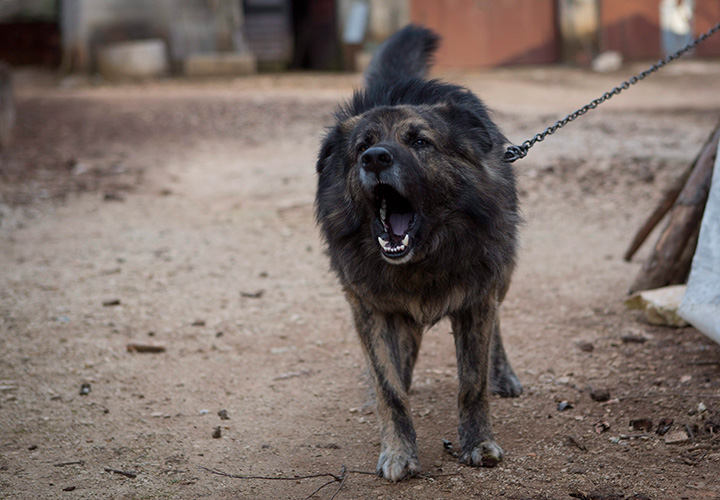An appeals court in Oregon upheld a decision forcing a family to have their dogs silenced by surgically “debarking” the pets after causing their neighbours years of disruption.

As The Oregonian first reported Wednesday, the Oregon Court of Appeals determined that the devocalization operations were necessary since the dogs’ owners had not done enough to quiet their pets from previous complaints.
According to a court summary (PDF) of the case, neighbours Debra and Dale Krein filed the lawsuit as a last resort after enduring “uncontrollable” barking from six or more dogs over “long periods of time” when the owners were away from the property.
In 2002, Karen Szewc and John Updegraff began to breed Tibetan Mastiff dogs when the barking began.
READ MORE: Halifax vets call for ban on ‘unethical’ declawing procedure
According the Kreins, the barking began as early as 5 a.m. and had caused the family and their guests discomfort.
Szewc and Updegraff received citations in 2002 and 2004 for violating public nuisance codes, according to the court summary.
Szewc argued the dogs bark when they sense predators and are necessary to keep the livestock on her property protected.
In 2015, Jackson County Circuit Court ruled the dogs’ owners must pay nearly US$240,000 in compensation for the disruptions the barking dogs had caused the Kreins. The owners were ordered to have their dogs debarked within 60 days or removed from the property.
Debarking or devocalization of dogs is a surgical procedure that involves the partial or full removal of the vocal cords.
WATCH: The Canadian Veterinary Medical Association has formally come out against declawing cats, with some hoping this will push Nova Scotia to an outright ban.

Speaking with Global News, Nick Wright, director of animal rights group Animal Justice, called the ruling “symbolic” as it’s another “failure to recognize animals suffer” like humans do.
“What the judge was doing in this case is failing to recognize the pain and suffering that would be caused by the debarking of these dogs and failing to recognize that animals are very much like humans in many ways and suffer too,” Wright said.
READ MORE: Why you should think twice before sharing a video of a dog walking on its hind legs
Wright noted that debarking for non-medical reasons is “an issue that has caused great concern that many jurisdictions have banned it.”
“There are some instances, due to health concerns about the dog, it may make sense to do this operation but non-therapeutic practices, including debarking to keep dogs quiet, doesn’t fall within that category.”
The procedure of debarking for non-medical related problems has been banned in the U.K., the European Union and in six U.S. states.
READ MORE: Disturbing video of Ottawa-area zoo reinforces calls for provincial regulations
Though debarking is legal in Canada, the Canadian Veterinary Medical Association (CVMA) “opposes non-therapeutic devocalization of dogs.”
“The devocalization procedure is non-therapeutic in nature if it is undertaken solely for the purpose of decreasing the volume, pitch, and intensity of a dog’s bark,” reads the CVMA position statement on the devocalization of dogs.
The CVMA cites several health and animal welfare concerns surrounding debarking for non-therapeutic reasons including scar formation and respiratory distress.
Both the CVMA and Animal Rights said they are not aware of a court ruling in Canada ordering the debarking of a family dog.
“Rather than debarking, it makes a lot more sense to recognize animals’ suffering like we do and instead address what the root cause is, so if the animals feel a threat or under duress, stress…it’s much better to change the situation for the animals so they don’t have this response or anxiety,” Wright said.
– with a file from the Associated Press




Comments